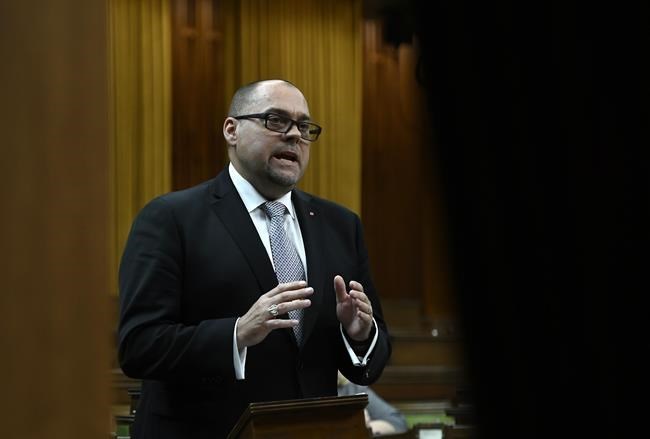OTTAWA — Todd Doherty still remembers the despair he felt when he learned one of his closest friends took his own life at age 14.
The day it happened, Doherty and a group of friends had gone swimming and were laughing and joking on their way home. All seemed perfectly normal until the next day, when his friend didn’t come to school.
Almost four decades on, Doherty torments himself about whether he could have done something to stop his friend from killing himself.
“He was one of my best friends," the B.C. Conservative member of Parliament told The Canadian Press. "I live that day over and over again.”
Yet the tragedy also inspired Doherty to try to help others, which is why he spearheaded a push in the House of Commons last December to establish a three-digit national suicide prevention hotline: 988.
Doherty's motion to take “immediate action” to establish the suicide prevention hotline was approved in the Commons in December 2020, with unanimous support among MPs, each of whom Doherty had contacted personally.
But more than a year later, the crisis hotline has still not been activated. That has prompted questions and concerns, particularly as the COVID-19 pandemic continues to wreak havoc on Canadians' mental health.
“We need to do whatever we can to protect the well-being of Canadians and save lives," Doherty said.
Doherty and others had hoped the hotline would be up and running by the end of 2021. Instead, it is the subject of consultations being led by the Canadian Radio-television and Telecommunications Commission (CRTC).
The CRTC launched the consultations in June "to hear from Canadians on whether a national three-digit number for mental health crisis and suicide prevention service should be established, and how to do so," spokeswoman Isabella Maestri said in a statement.
"The information received from Canadians and other interested parties will help the commission better understand the challenges and solutions, advantages, and costs associated with implementing a three-digit number for mental health crisis and suicide prevention services."
The current round of consultations will end on Jan. 31, she added, though participants will have until mid-March to submit responses.
That doesn't sit well with Conservative MP Mike Lake, who recently raised questions in the House of Commons about why it was taking so long to establish the hotline.
“One would have thought at this time of year it would have been introduced. It shouldn’t take this long,” the Alberta MP said in an interview. “A suicide prevention hotline should be a priority. There are a million reasons to expedite this.”
Statistics Canada says 11 people die by suicide each day, and that there are around 4,000 deaths by suicide per year.
Suicide rates are consistently higher among Indigenous people in Canada, particularly young people. From 2011 to 2016, the suicide rate was three times higher than among the non-Indigenous population, according to Statistics Canada.
Mental Health Minister Carolyn Bennett's office in a statement said the Liberal government remains committed to funding a national three-digit crisis line for mental health and suicide prevention.
But while Bennett's office said they "understand the urgency of implementing this crisis line," it said the issue currently rests with the CRTC.
The Canadian Suicide Prevention Service already operates an 11-digit suicide helpline, but Dr. Allison Crawford, the service's chief medical officer, said a three-digit dialing code would be far easier to remember.
“With this new number, more people will be able to get support from trained responders, which could reduce the burden on services that provide other kinds of mental health-related support,” she said.
For every person who commits suicide, there are an estimated 20 to 25 attempts, the Prevention Service said. An average of 275 people attempt suicide in Canada every day.
This report by The Canadian Press was first published Dec. 29. 2021.
Marie Woolf, The Canadian Press


